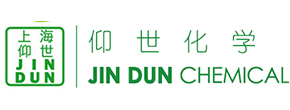Internal combustion engines will continue to roar in Europe after 2035
2023/9/26
Firstly, there is a very important concept here: what is E-fuels. Electric fuel uses electricity from renewable resources to separate hydrogen from water and mix it with carbon dioxide in the air. The liquid or gas produced contains hydrocarbon chains similar to gasoline, diesel, or methane, which also emit carbon dioxide during combustion. Supporters of this technology (oil companies and some traditional car companies) believe that this carbon dioxide is originally "captured" from the air, so E-fuels should also be considered climate neutral energy.
Of course, another benefit of using E-fuels is that it preserves the position of internal combustion engines in the future automotive market, as well as the roar of engines and the jobs of factories and workers related to this classic industrial chain.
At present, the production capacity construction of E-fuels is still in its early stages, and the world's first commercial E-fuels factory was completed in Chile in 2021, supported by Porsche in Germany. The factory plans to have a full production capacity of 550 million liters per year. Based on current limited data speculation, the production price of E-fuels per liter will still reach $3-4 by 2030. As a comparison, the average fuel price in the United States this week was only $1 per liter.
What does the EU draft say
According to the latest report on Monday, the proposed EU draft shows that cars will be allowed to use renewable electricity and E-fuels produced by "captured carbon dioxide" to ensure that no new greenhouse gas emissions are added to the atmosphere. In addition, biofuels extracted from corn will not be allowed to continue use after 2035. The wording of the EU draft is' Non biological carbon dioxide neutral fuels must achieve at least 100% reduction in greenhouse gas emissions'.
At the same time, car manufacturers need to enable engines to recognize E-fuels and traditional fuels to avoid loopholes in rules. The EU draft requires car manufacturers to ensure that their vehicles are equipped with "fuel monitoring and inducement equipment" to ensure that they cannot start using other fuels. At the same time, car manufacturers also need to ensure that this monitoring device is tamper proof throughout the entire lifecycle of the vehicle.
As a traditional automotive manufacturing powerhouse with well-known brands such as Volkswagen and Mercedes Benz, Germany has been demanding that new internal combustion engine cars be launched after 2035. Due to various limitations, the cost of using E-fuels will be more expensive, and the engine's roar is likely to be limited to some very high-end models.
The internal tension within the EU related to automotive emissions is also continuing. Germany failed to incorporate E-fuels into the strict new standard during Monday's discussion of the 'Euro 7 standard' known as zero carbon emissions. Sven Giegold, the State Secretary of the German Ministry of Economic Affairs and Environmental Action, told the media: "There are currently tense negotiations underway and Germany needs legal certainty.
JIN DUN CHEMICAL has built a special (meth) acrylic monomer manufacturing base in ZHEJIANG province. This makes sure the stable supply of HEMA, HPMA, HEA, HPA, GMA with high level quality. Our special acrylate monomers are widely used for thermosetting acrylic resins, crosslinkable emulsion polymers, acrylate anaerobic adhesive, two-component acrylate adhesive, solvent acrylate adhesive, emulsion acrylate adhesive, paper finishing agent and painting acrylic resins in adhesive.We have also developed the new and special (meth) acrylic monomers and derivatives. Such as the fluorinated acrylate monomers, It can be widely used in coating leveling agent, paints, inks, photosensitive resins, optical materials, fiber treatment, modifier for plastic or rubber field. We are aiming to be the top supplier in the field of special acrylate monomers, to share our rich experience with better quality products and professional service.

